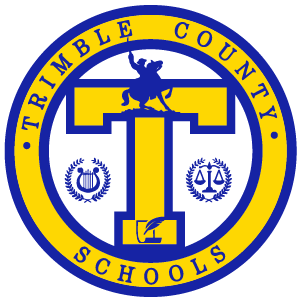SECTION 504 COORDINATOR
ECS.Trimble@trimble.kyschools.us
Trimble County Schools
116 Wentworth Ave.
Bedford, KY 40006
Office: (502) 663-0024
Fax: (502) 255-5106
SECTION 504 CASE MANAGERS
Bedford Elementary
Kelly Johnson
Office: (502) 255-3217
Milton Elementary
Agina Auxier
Office: (502) 268-3322
Trimble County Jr/Sr High School
Andrea Howerton
Office: (502) 255-7361
RESOURCES
SECTION 504 OF THE REHABILITATION ACT OF 1973
Section 504 is a Federal law that prohibits disability discrimination by recipients of Federal financial assistance. All public schools and school districts, as well as all public charter schools and magnet schools that receive Federal financial assistance from the Department must comply with Section 504.
Under Section 504, an individual with a disability (also referred to as a student with a disability in the elementary and secondary education context) is defined as a person who: (1) has a physical or mental impairment that substantially limits a major life activity; (2) has a record of such an impairment; or (3) is regarded as having such an impairment.
Section 504 provides a broad spectrum of protections against discrimination on the basis of disability. For example, all qualified elementary and secondary public school students who meet the definition of an individual with a disability under Section 504 are entitled to receive regular or special education and related aids and services that are designed to meet their individual educational needs as adequately as the needs of students without disabilities are met. Section 504 also requires, among other things, that a student with a disability receive an equal opportunity to participate in athletics and extracurricular activities, and to be free from bullying and harassment based on disability.
HOW SECTION 504 DIFFERED FROM THE IDEA
While the IDEA focuses on special educational services for children with disabilities and the related rights afforded to eligible students and their parents, Title II and Section 504 focus on the nondiscrimination rights of students as well as other individuals with disabilities who are not students, such as family members with disabilities and members of the public with disabilities seeking information from, or access to, the services, programs, and activities of the public school. For example, under Title II and Section 504, parents with disabilities must be able to attend their children’s school play or attend Parent Teacher Association meetings if other parents are able to do so.
Additionally, disabilities are defined differently under the IDEA than under Section 504 and Title II. Under the IDEA, a child with a disability means a child who has been evaluated in accordance with IDEA requirements as having a specified disability and to need special education and related services because of that disability. The IDEA and its implementing regulations include 13 disability categories: autism, deaf‐blindness, deafness, emotional disturbance, hearing impairment, intellectual disability, multiple disabilities, orthopedic impairment, other health impairment, specific learning disability, speech or language impairment, traumatic brain injury, and visual impairment including blindness.149 However, States can recognize that a child is “a child with a disability” under the IDEA if the child needs special education and related services, regardless of whether the child fits within a specific disability category.
If a school district finds a student ineligible for services under the IDEA, the school district is not relieved of its obligations under Section 504 or Title II; it is still required to consider if the student has a disability under Section 504 or Title II.
Section 504 and Title II require that an individual with a disability have a physical or mental impairment that substantially limits a major life activity or bodily function.
There are no categories of disabilities under Section 504 and Title II; nor is there a requirement that an individual need special education and related services under Section 504 to be considered an individual with a disability. However, a child who has a disability who requires only a related service could be considered an individual with a disability for purposes of Section 504 and would be entitled to FAPE services under Section 504.
As a result, all students with disabilities who are eligible for special education and related services under IDEA are protected by Section 504 and Title II. The inverse, however, is not true. Not all students protected by Section 504 and Title II are IDEA-eligible students.
